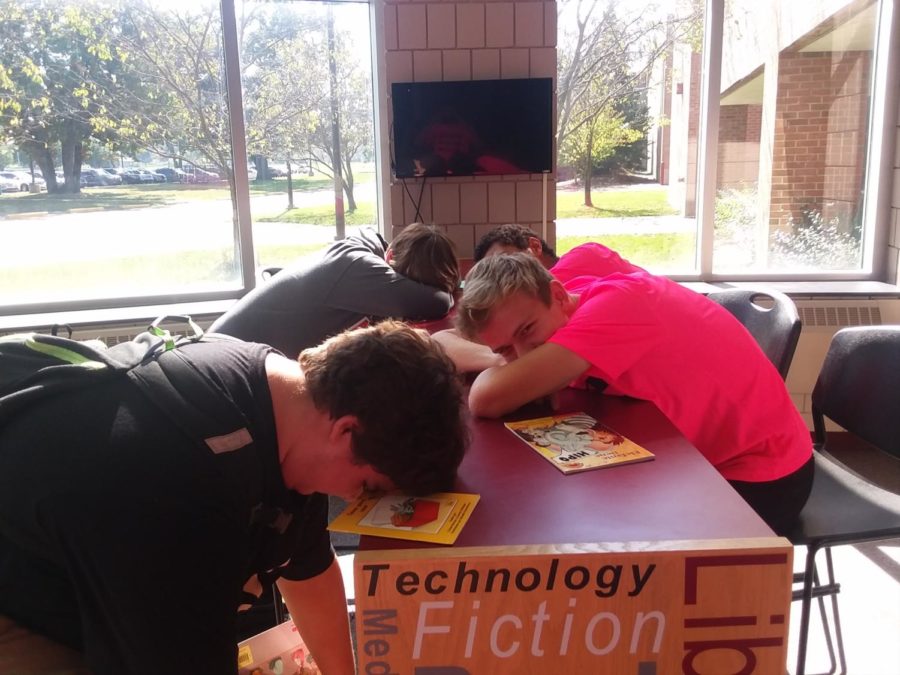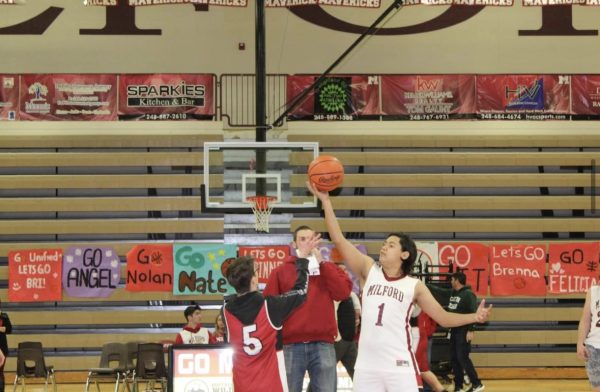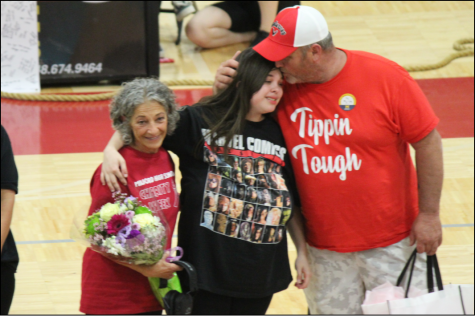Are MHS students getting the sleep they need?
Front to back Alex Leonard, Nolan Preis, Reshaun Crawford, and Michael Pasco Catch up on their missed sleep in the Media Center. High school students only average 7-7.5 hours of sleep per night when research shows many students need at least 9 hours per night. (Photo by Jonathon Ouellette.)
October 10, 2018
Think about this question for a little bit: how much sleep do you get a night? According to Nationwide Children’s Sleep Center, “The average amount of sleep that teenagers get is between 7 and 7 ½ hours. However, they need between 9 and 9 ½ hours.”
Studies show that most teenagers need exactly 9 ¼ hours of sleep. Most students are not getting near that amount.
Ryan O’Rourke, a freshman and a student athlete is one of those students.
“I get about 7 ½ hours of sleep and go to bed around 10:30,” he said, noting it is especially difficult to be alert in the morning. “It does affect me a little bit, but wears off half way through.”
I then asked what he does before bed and how he could change it to get more sleep.
“I watch 30 minutes of TV and for tests I study 1-2 hours,” he said. And a way Ryan could change to get more sleep is to cut down TV time and to break down his study sessions.
Teachers and administrators are well aware that many of their students are not getting enough sleep.
In an interview with Mrs. Suminski, I asked how do you think lack of sleep affects students?
She started with, “It affects their mood and they can be easily agitated, and teachers can get mad about that, and with lack of sleep they can become late to first hour and they can’t finish their work.”
I asked after, what advice do you have for students who are losing sleep? Her advice was, “Train your brain to get more sleep by going to bed earlier; the process may take several days/weeks.”
She also said to put your phone down and away for 1 hour before you go to bed to relax and calm your brain.
With Mrs.Suminski being a first hour teacher and the Dean of Students, I had to ask how many students do you have to deal with missing 1st hour?
“Once we get further into the year, there will be more tardies,” she said. She noted that she already had 26 tardies in her first hour.
In an interview with a senior, Grant Ballard, I asked if unhealthy foods affect his sleep. I asked, do you eat or drink anything unhealthy. He responds with “Not often.”
Then I asked, do you think people who eat/drink unhealthy don’t get enough sleep?
“Yeah, because they don’t take good care of their body. Foods that can interfere with sleep include high-sugar, high-carbohydrate, heavily processed foods,” Sleepscore labs said.
Although after school activities and homework can get in the way of sleep, students need to put their priorities first and not stay up to watch their favorite TV series or go on their phone because they will regret it in the morning.
And studies show you need your sleep to feel good and ready for tomorrow.









